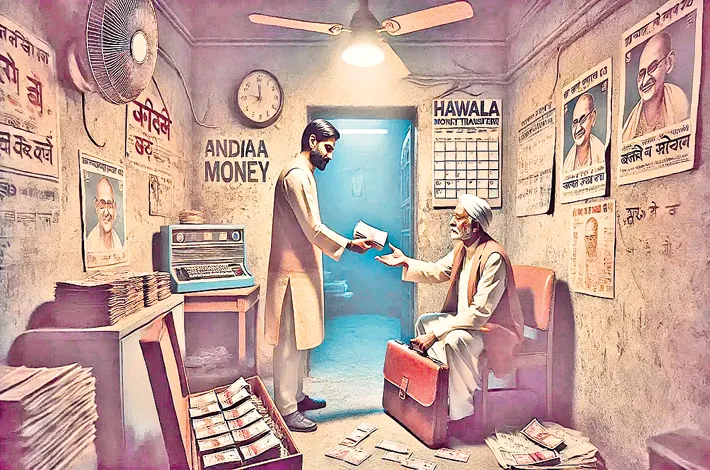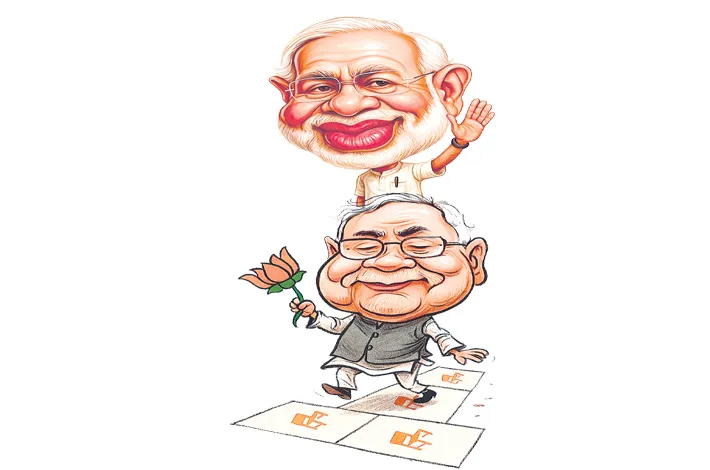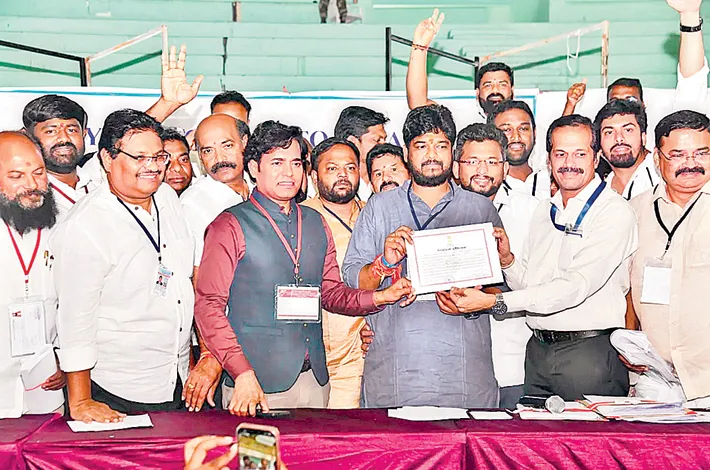Factory Owner Duped in Rs. 25 Lakh Loan Scam
11-07-2025 12:00:00 AM

Sharma, with his polished demeanor and promises of “soft terms,” offered Reddy a deal that seemed too good to be true: a Rs. 50 crore cash loan at a modest 9% interest rate, secured against the pledge of Reddy’s factory property in Uppal.
metro india news I hyderabad
In the bustling industrial hub of Hyderabad, a tale of deception has left a local factory owner reeling from a staggering financial loss. Vikram Reddy, a 52-year-old entrepreneur who runs a mid-sized textile manufacturing unit in the Jeedimetla Industrial Area, thought he had secured a lifeline for his struggling business.
Instead, he fell prey to an elaborate loan scam, losing Rs. 25 lakh to a smooth-talking consultant and a mysterious lender who vanished into thin air.The ordeal began three months ago when Reddy, grappling with mounting debts and a cash crunch, was approached by Arjun Sharma, a self-styled financial consultant known in Hyderabad’s business circles for his knack for arranging quick loans.
Sharma, with his polished demeanor and promises of “soft terms,” offered Reddy a deal that seemed too good to be true: a Rs. 50 crore cash loan at a modest 9% interest rate, secured against the pledge of Reddy’s factory property in Uppal. Desperate to keep his business afloat, Reddy agreed.Sharma arranged for Reddy to meet the supposed lender, Mahesh Khanna, at a luxurious five-star hotel in Kolkata’s upscale Park Street area.
Over a lavish dinner at the hotel’s rooftop restaurant, with the glittering Kolkata skyline as the backdrop, Khanna spoke glowingly of Sharma’s reputation and assured Reddy that the funds would be disbursed within 15 days. “He was charming, confident, and seemed genuine,” Reddy recounted, his voice heavy with regret.
“He even showed me documents and spoke about his connections with high-profile financiers.”Khanna went a step further, displaying an unusual level of flexibility. He agreed to release the funds against post-dated cheques and a basic loan agreement, with the formal mortgage to be executed a month later. “It felt like a dream deal,” Reddy said.
The terms were finalized, and both parties shook hands, with Reddy returning to Hyderabad hopeful that his financial woes were nearing an end.A week later, Khanna contacted Reddy with an update: the Rs. 50 crore was ready for dispatch via a hawala network, a common but shadowy method of transferring large sums of cash.
To lend credibility to the process, Khanna shared the serial numbers of 500-rupee notes that would supposedly make up the payment, instructing Reddy to arrange a secure delivery point in Hyderabad with counting machines and security personnel. However, there was a catch—Khanna demanded Rs. 25 lakh upfront to cover “hawala charges and logistics.” Eager to seal the deal and believing the funds were imminent, Reddy wired the amount to an account provided by Sharma.
The next 24 hours were a whirlwind of anticipation for Reddy. He set up a secure room at his factory, hired additional guards, and even rented cash-counting machines. But as the hours ticked by, no money arrived. Khanna’s phone went silent, Sharma’s number was switched off, and the Kolkata hotel confirmed that no one by Khanna’s name had ever checked in. The chilling realization hit Reddy: he had been conned.
“I trusted them blindly,” Reddy admitted, sitting in his modest office surrounded by stacks of unpaid bills. “They preyed on my desperation.” The Rs. 25 lakh, borrowed from friends and family, was gone, and with it, Reddy’s hopes of reviving his factory. Worse, the illicit nature of the hawala transaction left him unable to approach the police. “How do I explain a cash deal like this? I’d be implicating myself,” he said, his face etched with despair.
Hyderabad’s Cyberabad police, while not officially investigating Reddy’s case, noted a rise in similar scams targeting small and medium-sized business owners in the city. “Fraudsters exploit the need for quick capital, especially in cash-strapped industries,” said a senior officer, speaking on condition of anonymity. “They use the promise of low-interest loans and informal channels like hawala to lure victims, who often hesitate to report the crime due to the illegal nature of the transactions.”
Reddy’s story is a cautionary tale for Hyderabad’s thriving industrial community, where entrepreneurs often navigate a maze of financial challenges. As he struggles to recover from the loss, Reddy is left with a bitter lesson: if a deal seems too good to be true, it probably is. For now, his factory limps along, its future uncertain, while the elusive Sharma and Khanna remain at large, likely scouting their next target in the shadows of India’s financial underbelly.








